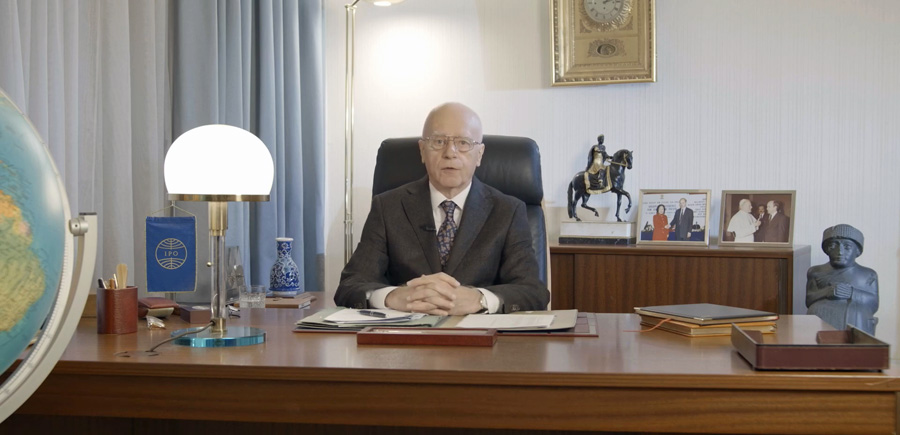|
International Progress Organization Statement by the President on the Occasion of the 50th Founding Anniversary |
|
In the half century since its founding, the International Progress Organization has witnessed, and consecutively commented on, major tectonic shifts in international relations. A dramatic change of geopolitics occurred with the end of global bipolarity and the end of the Cold War in the years after 1989. The "unipolar moment" of the turn of the millennium, prematurely celebrated by some as the dawn of a "New World Order," has instead led to the gradual emergence of a new multipolar constellation, different from the balance of power that had made possible the foundation of the United Nations after World War II. This development is now, in 2022, threatened by major systemic risks for global order and peace. Amidst all the turmoil and upheavals of the last fifty years, the focus of the International Progress Organization has remained the same: namely, to contribute to a more critical self-awareness of humankind as basis for peaceful co-existence among states, civilizations, and peoples. At this juncture in the history of the I.P.O., it is appropriate to recall that the proponents of the organization described "support for the advancement of international law on the basis of the universal principles of human rights" as one of the main aims of their initiative (Article 2 of the Statute, submitted on 15 June 1972 to the relevant authorities of the Republic of Austria as the host country). At the Constitutive General Assembly on 30 October 1972, in the Tyrolean capital of Innsbruck, the founding members from Austria, Egypt, India and other countries identified the principles of Internationalism, Universalism and Pacifism as guidelines for the work of the organization. In the course of 1972, we established contact with the United Nations Organization and invited it to take part in our first international conference, in July 1974, on "The Cultural Self-comprehension of Nations." In February 1977, the Economic and Social Council of the United Nations granted consultative status to the I.P.O. In the past decades, the International Progress Organization has evolved into a global think tank dealing with crucial issues of global peace and justice. In several instances, the organization was the first to identify problems and propose solutions -- in some cases decades before the mainstream catched up with the ideas: * In 1972, we identified, and analyzed, "dialogue among civilizations" as core issue of peaceful co-existence, and approached the UN as well as UNESCO in that regard. * In 1980, the I.P.O. published an analysis on "human rights and international law," suggesting that the basic norms of human rights should be defined as foundation also of the legitimacy of international law, and calling for normative consistency of the international system in that regard. * In 1985, we convened an international meeting of experts in New York City on "democracy in international relations," focusing on the need to apply democratic principles also in relations between states. This led us to formulating specific proposals, in 1991, for reform of the UN Security Council, especially in regard to the voting procedure and the concept of permanent membership. * In 1991, the I.P.O. raised the issue of "economic sanctions and human rights." At a meeting of the UN Commission on Human Rights in Geneva, our organization was the first international voice to state that sanctions imposed by the United Nations Security Council must conform to human rights as jus cogens of general international law. * In 1991, we published the first critical assessment of the "New World Order" that was prematurely declared after the end of the cold war -- and that has proven unsustainable in the following decades. * In the years from 2000 to 2007, the I.P.O. developed the conceptual framework for a system of international criminal justice, identifying major difficulties in regard to power politics and the assertion of national interests. Our initiative stemmed from the nomination, by the Secretary-General of the United Nations, of two of our delegates as international observers at the Scottish Court in the Netherlands (Lockerbie Trial). The analytical observer reports by the I.P.O. had a considerable impact on debates over international criminal justice and on the concept of "international observer" in international trials. As member of the Conference of Non-governmental Organizations associated with the United Nations, the I.P.O. has frequently worked in cooperation with the UN and other inter-governmental and non-governmental organizations. Results and recommendations have been presented in numerous research and conference publications (in the series "Studies in International Relations" and in several monographs) plus hundreds of position papers in the fields of international law, human rights, intercultural studies, and international relations theory in general. Looking back at the founding declaration of October 1972, and considering the legacy of half a century, we can say with conviction that our understanding of "Progress" has stood the test of time. Striving to attain the greatest possible insight, relative to the infinite horizon of Being, is still the essence of the collective advancement of nations -- as a never-ending pilgrimage of self-reflection of the human race. Vienna, Austria, 30 October 2022 Dr Hans Köchler |

